
Beginner one-piece
.pdf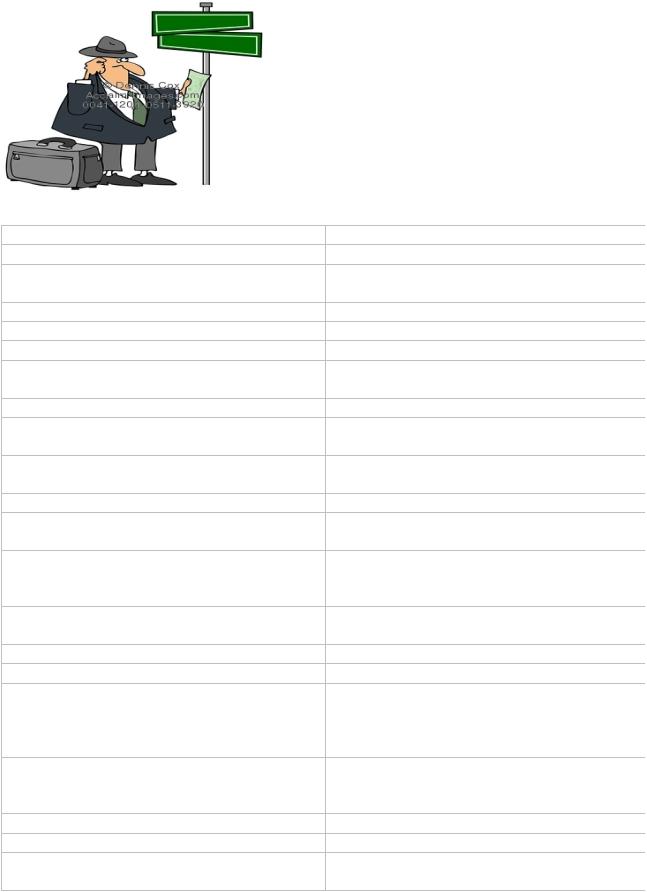
LESSON 11
In the Town
Divine Nature gave the fields, human art built the cities.
No city should be too large for a man to walk out of in a
morning.
The axis of the earth sticks out visibly through the centre |
||||
|
|
|
of each and every town or city. |
|
|
Cities force growth, and make men talkative and |
|||
|
entertaining, but they make them artificial. |
|||
TOPICAL VOCABULARY |
|
|
|
|
1. General |
1Загальна. лексика |
|
|
|
village (country) / district / region / town (city) |
селорайон/ / бламі/ стоь |
|
|
|
street / by-street / block / boulevard / square / |
вулиця /прок/вулокарталбульвар/ / |
|
||
avenue / pavement (Br. sidewalk) / roadside |
площаавеню/ / |
тротуарузбіччя/ |
||
road / way / route / crossroad |
дорогашлях/ |
|
/маршрут / перехрестя |
|
bus-stop / taxi-rank |
зупинкаавтобуса |
/зупинкатаксі |
||
subway (underground, Br. tube)=U (as a sign) |
метро,підзерехідмний |
|
|
|
traffic / traffic light / street light / traffic jam / |
рух,транспортсвітлофор/ вуличний/ |
|
||
rush hour |
ліхтар/ |
“дорожнійзатор |
” /годинапік |
|
passenger / fare / seat |
пасажирпл/ зпроїздтамісце/ |
|
|
|
driver / passer-by / pedestrian / stranger |
водійперехожий/ пішохід/ незнайомець/ |
, |
||
|
немісцевий |
|
|
|
to be lost (to lose one’s way) / to be on the right |
заблбути/ направилькати |
хибному( ) |
||
(wrong) way |
шляху |
|
|
|
to walk(ed) / to go on foot |
прогулюватися / йтипішки |
|||
to ride / to drive / to go (by bus, car, taxi) |
їхативерхи |
|
/керувати |
автоїхати/ |
|
(автобусом,машиною,натаксі) |
|
||
to take the bus (right, wrong) / to get on (off) a |
сістивавтобус( |
той,невтой)зайтив/ |
||
bus / to wait(ed) for a bus |
автобусвийти( завтобуса)чекати/ на |
|
||
|
автобус |
|
|
|
parking lot (car park) / filling station / gas |
паркувальниймайданчикзаправ/ / а |
|
||
(gasoline), fuel, petrol (Br.) |
паливо,бензин |
|
|
|
(car) accident |
(автомобільна) аварія |
|
||
2. Vehicles |
2Тран. засобипортні |
|
||
public: |
громадськийтранспорт: |
|
||
bus (crowded / empty) / trolley-bus / double- |
автобуспереповне( порож/ ) / нійий |
|
||
decker / tram / taxi |
тролейбусдвоповерховий/ автобус/ |
|
||
|
трамвайтаксі/ |
|
|
|
private: |
приватнийтранспорт: |
|
||
(motor)car / motor-cycle / motor-scooter / |
автомобільмотоцикл/ мотороле/ |
р/ |
||
bicycle (bike) |
велосипед |
|
|
|
рolice / police officer (cop) / police car |
поліціяполіцейський/ |
/ поліцейськеавто |
||
3. Directions |
3Напрямки. |
|
|
|
attracting attention: |
якпривернутиувагу: |
|
||
Еxcuse me / Pardon / Sorry |
Вибачте / Перепрошую |
|||

asking the way: |
якспитатидорогу: |
|
How do / can I get to…? |
Якменідістатисядо…? |
|
Does this street go to / lead to…? |
Чивулицяведе |
до…? |
Is it far from…? / Is it a long way to the …? |
Чидалекодо…? |
|
I’m looking for… / Where is the nearest…? / |
Яшукаю…Денайближчий/ …Яккраще? / |
|
What’s the best way to…? |
дістатисядо…? |
|
explaining directions: |
якпояснитидорогу: |
|
go (walk) down / up / along / across / past / |
ідітьунизугору/ уздовж/ через/ повз/ / |
|
straight (on) |
прямо |
|
turn to the right / to the left |
повернітьправоручліворуч/ |
|
take the first / second turning |
першийдругий/ поворот |
|
in / on / at / near / next to / between / along / under / в,у / на / біля / поруч з / між / вздовж / під /
above / opposite / in front of / behind |
над / навпроти / перед / ззаду |
|
INTRODUCTORY TEXT |
Town and Country |
|
Notes to the text: |
||
|
||
stream – річка; струмок |
residential – житловий |
|
country-side – сільська місцевість |
skyscraper – хмарочос |
|
rural – сільський |
suburb – передмістя |
|
urban – міський |
department store – універмаг |
|
industrial – промисловий, |
to move(d) out – виїжджати |
|
індустріальний |
|
Today people all over the world are moving out of small villages to go and live in big, noisy cities. They are moving from the peaceful hills, mountains, fields, rivers, and streams of the country-side to the busy world of streets, buildings, traffic, and crowds. This movement from rural to urban areas has been going on for over two hundred years. In many countries, the main reason people come to live in towns and cities is work. After one or two large factories have been built in or near a town, people come to find work, and soon an industrial area begins to grow. There is usually a residential area nearby, where the factory workers can live. The families of these workers need schools, hospitals and shops, so more people come to live in the area to provide these services, and so a city grows.
In every major city in the world there is a business district where the big companies have their main offices. It is usually in the city centre. It is here that you can see the huge skyscraper office blocks. The people who work here often travel a long way to work each day. Many of them live in the suburbs, far away from the industrial area and the city centre. Some suburbs are very pleasant, with nice houses and big gardens. There are usually parks for children to play in and large department stores where you can buy all you need.
But what is the future of the big cities? Will they continue to get bigger and bigger? Perhaps not. Some major cities have actually become smaller in the last ten years, and it is quite possible that one day we will see people moving out of the major cities back into smaller towns and villages.
1.Comprehension questions.
1.What is the main reason why people come to live in cities?
2.Why does a city grow ?
3.What is there in every major city ?
4.Where do many people who work in the centre live?
5.What is the future of big cities ?
6.Will they continue to get bigger and bigger?

2. Find the English equivalents from the text.
Гомінкі міста, спокійні пагорби, сільська місцевість, гучний світ вулиць, переселення із сільських районів у. міські, промисловий район починає рости, люди забезпечують ці послуги, головні офіси великих компаній, хмарочоси, люди щодня долають довгий шлях, передмістя, з гарними будинками та великими садами,д еякі великі міста зменшилися.
VOCABULARY PRACTICE
1. Where can you do these things? Choose the best place from the box.
post office, pet shop, bakery, library, park, sports centre, record shop, newsagents, hotel, restaurant
1. Mike hasn’t got any food for his dog. – pet shop.
11.Kelly is sleeping in a nice bed. … . Harry is buying a magazine. … .
12.Mrs Harris is walking with her dog. … .
13.Laura is sending a present to her friend in France. … .
14.Martin is playing basketball. … .
15.Mr and Mrs Cole are eating Chinese food. … .
16.Fiona is buying some bread and six cakes. … .
17.David is reading about the history of his town. … .
18.Dino is buying a CD for his sister. … .
2.Complete these names of places. Use words from the box. (There are two words you don’t use.)
|
Computer, library, post, car, train, swimming, fast, food, café, bus, sports |
||
1. |
_____________ pool. |
4. |
_____________ centre. |
2. |
_____________ station. |
5. |
_____________ stop |
2. |
_____________ shop. |
6. |
_____________ office. |
3. |
_____________ park. |
7. |
_____________ place |
3.Put the words in the correct order to make up sentences.
1.the of The in butcher's. front is greengrocer's
……………………………………………………………………
2.near a there is Excuse supermarket here? me,
……………………………………………………………………
3.a and down over bridge. Go railway hill the
…………………………………………………………………...
4.is shop big flower The a school. opposite
……………………………………………………………………
5.the Road. The Norton is corner on of bank
…………………………………………………………………
6.me, where Excuse railway station? the is
………………………………………………………………………
4.Complete the sentences with English equivalents.
1.(Пішоходи) cross the street on the zebra crossing .
2.In New York, there are a lot of (хмарочосів) , with big flats.
3.In Paris, a lot of (вулиць) are famous, such as the Champs-Elysées.
4.Manhattan is a famous American (район).
5.If (світлофор) are red, the cars can't go on.
6.In Paris, (тротуари) are usually wide.
7.I won't come back home soon because there is a lot of (транспорту) .
8.I live in Paris and I don't have car, so I use (метро) .
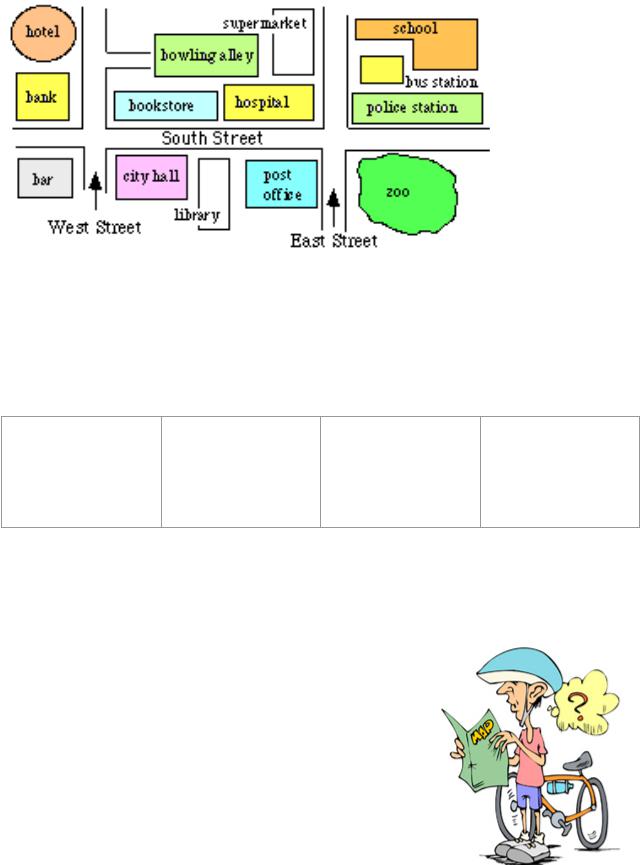
9.The men are building a new road, we can see (дорожні роботи).
10.A (дорожній знак) tells us we can't turn left.
5.Complete the sentences according to the map.
1.The hotel is next to the ………. .
2.The zoo is ………. the police station.
3.The ………. is between the post office and the supermarket.
4.The bowling alley is on ………. Street.
5.The ………. corner of ………. Street and ………. Street.
6.………. front of ………. .
6.Put the words in the box into the blank spaces below and read the following dialogues.
across |
front |
miss |
take |
your |
how |
moment |
to |
corner |
left |
next |
transfer |
down |
looking |
off |
way |
exit |
lost |
on |
where |
far |
|
|
|
Directions by street name and nearby landmarks:
A:You look ………. . Can I help?
B:Yeah. I’m ………. for the Caprice Theatre. Do you know ………. it is?
A: It’s on the ………. of Elm Street and 22nd Avenue. It’s ………. to the Art Gallery. You can’t
………. it.
Directions by subway and bus:
A:Excuse me. Can I trouble you for a ……….?
B:Sure. What’s wrong?
A:I’m lost. Do you know ………. to get ………. the Stadium?
B:The easiest ………. to get there is probably by subway. Just ………. the Central Line to Broadway Station. ………. to the Green Line and Get ………. at Harbour Station. If you go out ………. number four it should be right in ………. of you.
Directions by foot or car:
A:Can I get to the Harlton Hotel from here ………. foot?
B:Sure. It’s not that ………. . Just go ………. 4th Avenue to Main Street. Turn ………. on Main. It should be on ……….
right. It’s ………. from the park.
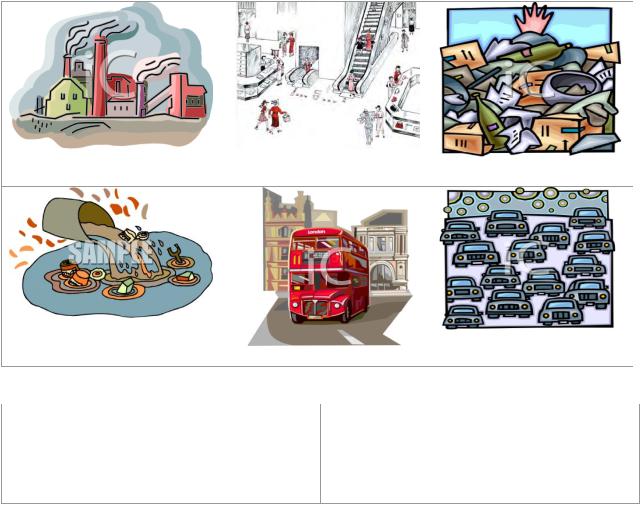
7.Read the following dialogues.
A:Excuse me! Could you tell me where the nearest bank is, please?
B:Walk two blocks and turn left at the bookstore. The bank will be across the street, next to the post office.
A:Is it far from here?
B:No, it’s just a ten-minute walk.
A:Thank you very much.
B:You’re welcome.
*****
A:Excuse me, could you help me, please? I’m looking for the Science Museum.
B:Go down this street and turn right at the traffic light. Go past the flower market, and you’ll see the Science Museum.
A:Thanks a lot.
B:Don’t mention it.
8.Complete the sentences on the pictures with the suitable words: garbage, crowded, comfortable, polluted, air, jammed.
There is a lot of_____ pollution from the factories.
The rivers are very __________
The department stores are so |
There is too much ________ |
|
______________ |
||
|
The roads are always The buses are so _________ _______________
9.Is it good to live in a city? Prove your reasons with the options below.
FOR |
AGAINST |
Near medical services |
Polluted air |
Near schools, colleges, universities |
Noise |
Near cinemas, theatres, restaurants etc |
Accommodation is expensive |
Shops open 24 hours a day |
A high crime rate |
10. Choose the right preposition in brackets.
There are a lot of people who work ______ (at, in, by) London but prefer to live, ______ (at in, by) small towns and villages ______ (at, in, by) the counties around the capital.
______ (In, For, By) the morning rush hour, ______ (from, to, between) 7.30 and 8.30 thousands of people pass through just one of many stations ______ (to, from, on) their way ______ (to, from, at) work.
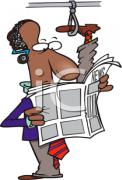
Peter King is an accountant. He lives ______ (from, in, to) Whitstable, a seaside town ______ (from, in, to) Kent, about fifty miles
______ (from, to, by) London.
On weekdays he gets up ______ (at, on, from) 6.00 and has a quick breakfast ______ (of, with, in) cereal, toast and tea. He leaves the house
______ (at, by, from) 6.45 and walks ______ (near, at, to) the station.
He catches the 7.00 train ______ (to, by, at) Victoria and gets there
______ (from, on, at) 8.00. It takes him ten minutes ______ (for, to, in) walk ______ (from, by, to) his office.
11. Fill in the gaps with suitable words. |
|
|
|
|
watches |
have |
talk |
works |
finishes |
read |
does |
has |
goes |
relax |
starts |
has |
gets |
surfs |
washes |
He ______ for one of the biggest companies in the UK. He ______ work at around 8.30, and usually ______ lunch from 12.30 to 1.30. In the afternoon, he ______ at 5.30, but never
______ home before 7.30. In the evening he ______ dinner with his wife and children, and they
______ about their day. He generally ______ the BBC news at 9.00 and then ______ the internet for a while before going to bed.
On Saturdays he ______ to the supermarket with his wife, ______ the car and ______ jobs around the house. On Sundays they ______, ______ a late breakfast and ______ the newspapers.
12. Writing options. Try to make a story on the offered topics.
1.What city do you live in? What part of this city do you like the best? Why?
2.How can we make our cities safer places to live?
3.How can traffic accidents be prevented?
4.What are the major problems in your city? Would you like to become the mayor of your city? What things would you change?
5.Would you prefer to live in an old historical city or in a new modern city?
HUMOUR TIME
Why did the stupid racing car driver make ten stops during the Grand Prix? He was asking for directions.
*****
In a very small alley two trucks driving in opposite directions meet. As the drivers are equally stubborn, neither of them wants to reverse. They angrily look one at the other. Finally, one of them picks up a newspaper and starts reading. The other one politely asks, “When you’ve finished the paper, will you please bring it over, and let me read it?”
*****
A blonde was visiting Washington, DC for the first time. She wanted to see the Capitol building. Unfortunately, she couldn’t find it, so she asked a police officer for directions – “Excuse me, officer, how do I get to the Capitol building?”
The officer replied, “Wait here at this bus stop for the number 54 bus. It'll take you right there.” She thanked the officer and he drives off.
Three hours later the police officer returned to the same area and, sure enough, the blonde is still waiting at the same bus stop.
The officer got out of his car and said, “Excuse me, but to get to the Capitol building, I said to wait here for the number 54 bus and that was three hours ago! Why are you still waiting?” The blonde replied, “Don’t worry, officer, it won’t be long now. The 45th bus just went
by!”
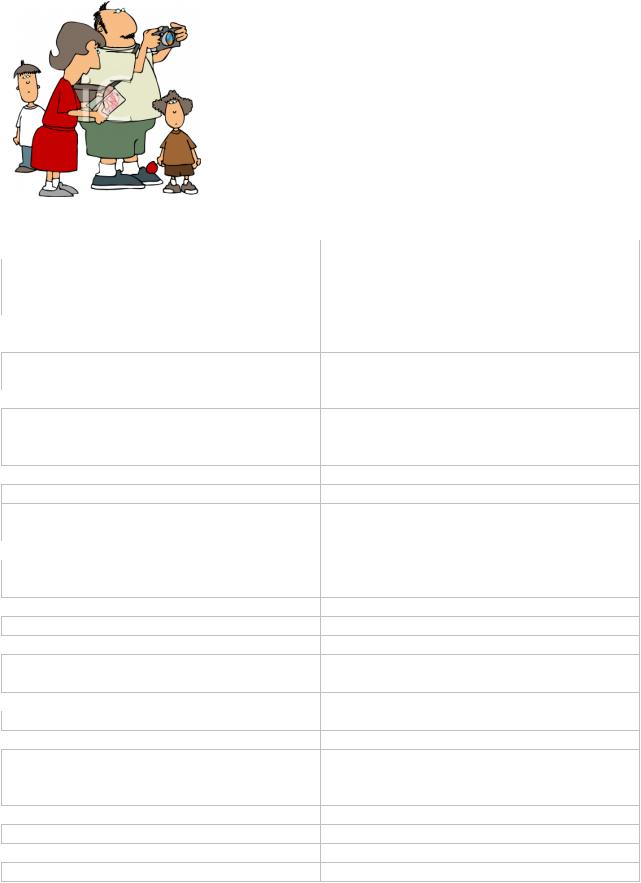
LESSON 12
Traveling
Travellers never think that they are the foreigners.
The engine is the heart of an airplane, but the pilot is its soul.
The best car safety device is a rear-view mirror with a cop in it.
In America there are two classes of travel – first class, and with
children.
The traveller sees what he sees. The tourist sees what he has
come to see.
TOPICAL VOCABULARY  1. General
1. General
traveling / trip / journey / voyage / hike
 to travel(ed) by train / ship / air / on foot
to travel(ed) by train / ship / air / on foot
to go on a / to set off for a (two-day) tour, trip / package tour
 to book(ed) tickets in advance / booking office
to book(ed) tickets in advance / booking office
boarding / arrival / departure
to travel light / luggage, baggage / hand / carry on luggage / to check one’s luggage
 bag / suit-case / trunk
bag / suit-case / trunk
left-luggage office / cloak-room / check-room to catch (the train / plane) / to board(ed) a ship, a plane / to get off
 2. Traveling by Train
2. Traveling by Train
a single ticket / return ticket / fare
 porter / attendant
porter / attendant
to change(d) trains / terminus
 information office / waiting room / schedule carriage / sleeping car / sleeper / compartment / berth / rack / linen
information office / waiting room / schedule carriage / sleeping car / sleeper / compartment / berth / rack / linen
 dining car
dining car
3. Travelling by Sea
 landing stage / harbour / seaport
landing stage / harbour / seaport
to set sail for / to call(ed) at a port / to have a smooth / rough voyage (crossing)
 steamer / gangway / deck
steamer / gangway / deck
cabin / first (second) class cabin
 to be sea-sick / to suffer from sea-sickness
to be sea-sick / to suffer from sea-sickness
4. Travelling by Air (Plane)
1. Загальна лексика |
|
|
||
подорожчастіше( далекаабозакордон) |
|
|
/ |
|
подк(оро) ткаж |
/ подо( рожвга |
|
, |
|
частішепоземлі |
|
) / подморожем |
|
/ похід |
подорожуватипотягом |
/ кораблем / літаком |
|||
/ пішки |
|
|
|
|
поїхативирушити/ |
удводенний( )тур, |
|
|
|
подорожза/туриспутичноюівкою |
|
|
||
купитиквиткизаздалегідь |
/ білетнакаса |
|||
посадкаприбуття/ від/’їзд |
|
|
|
|
подорожуватибезбаг/ ру/гаж |
|
|
чна |
|
поклажа/ |
перевірити багаж |
|
|
|
сумкаваліза/ велика/ |
іза |
|
|
|
камерасхову |
|
|
|
|
сістинапотяг( літак/ )сістина/ борт |
|
|
|
|
корабля,літаказійти/ |
|
|
|
|
2. Подорожпотягом |
|
|
|
|
квитокоднусторону |
/ зворотнійквиток |
/ |
||
плзпроїздата |
|
|
|
|
носій / провідвагонаик |
|
|
||
пересістинапоїздкінцева/ зупинка |
|
|
|
|
довідковебюро |
|
/ залочікування |
/ розклад |
|
вагон / спальний вагон / купе / спальне |
||||
місце / поличка / сіткадляречей |
/ постіль |
|||
вагон-ресторан |
|
|
|
|
3. Подорожморем |
|
|
||
пристань / гавань / морський порт |
|
|||
вирушитиплаваннязаходити/ |
|
|
порт/ |
|
здійснюватинеспокійну/ |
|
|
||
(бурхливу)подорож |
|
|
|
|
пароплав / трап / палуба |
|
|
||
каюта / 1-го / 2-гокласу |
|
|
||
матиморськухворобу |
/ страждативід |
~ |
||
4Подорож. літаком |
|
|
|
|
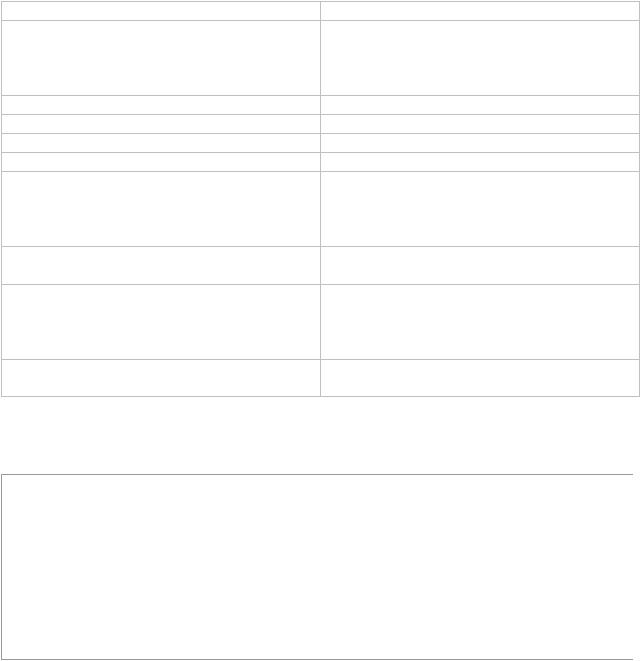
air terminal / airport |
|
аеропорт |
|
|
|
airlines / boarding pass / duty-free shop |
|
авіалініїпо/ |
садковийталонмагазин/ |
|
|
|
|
“дьюті-фрі” |
|
|
|
check-in counter / claim-check / immigration |
стійкареєстрації |
|
/ квитанція / імміграційний |
||
form |
|
бланк |
|
|
|
to weigh(ed) / to label(ed) / to insert(ed) |
|
зважити / маркувати / вклеїти |
|
||
departure lounge / announcement |
|
залаочікування |
|
/ оголошення |
|
to hijack(ed) (highjack) a plane |
|
захопитилітак |
|
|
|
5. Customs |
|
5Митниця. |
|
|
|
border / to cross(ed) the border / to smuggle(d) |
кордонпере/ |
|
тинатикордпр/ овн |
озити |
|
in (out) |
|
контрабавіз()країнудою |
|
||
customs officer / passport / foreign passport / |
митникпаспорт/ за/ ордоннийпаспорт/ |
|
|||
visa |
|
віза |
|
|
|
to go through customs / to go through one’s |
|
проходитимитни |
|
йконтрольоглядати/ |
|
luggage / customs clearing (inspection) |
|
багажмитний/ контроль |
|
|
|
customs duty / duty-free / duty-free quota list / |
митобезопла/ мипе/ тречеаиелік |
|
й, |
||
to be liable to duty |
|
дозволенихдлябезмитногоперевезення |
/ |
||
|
|
стягуватимито |
|
|
|
to fill in (out) a customs declaration |
|
заповнитимитнудекларацію |
|
||
to carry(ied) currency / weapons / personal |
|
перевозитивалютузброю/ особисті/ речі/ |
|
||
belongings (effects) / used items / permit |
|
речі,щобувикористаннілидозвіл/ |
|
||
INTRODUCTORY TEXT |
|
|
|
|
|
Traveling |
|
|
|
||
Notes to the text: |
|
|
|
|
|
impossible – неможливий |
unfortunately – нажаль |
|
|||
to travel(ed) on business – |
seasick – якийстраждаєморськхворобою |
|
|||
подорожуватисправах |
petrol – бензин |
|
|
|
|
to be (was/were; been) eager – прагнути |
ardent motorist – затятий автолюбитель |
|
|||
picturesque landscapes– мальовничі |
to gather(ed) mushrooms and berries – збирати |
||||
пейзажі |
грибиіягоди |
|
|
|
|
waterfall – водоспад |
to make(made; made) a bonfire – зробити багаття |
||||
inconvenient – незручний |
overcoming hardships – подолання труднощів |
||||
delays of flights – затримки рейсів |
achieving the goal – досяганнямети |
|
|||
to move(d) smoothly – рухатися плавно |
|
|
|
|
|
Modern life is impossible without travelling. Millions of people all over the world travel every day either on business or for pleasure. They are eager to see other countries and continents, to enjoy picturesque landscapes, to learn other peoples’ traditions, to discover different ways of life, to meet new friends, to try various cuisines – in short, to get new impressions. And to practice in foreign languages as well!
Most travellers and holiday-makers equip themselves with cameras and take pictures of exciting views of buildings, monuments, waterfalls, forests, plants and animals. These photos will remind them of the happy time of holiday.
Basically, there are four means of travelling: by air, by rail, by sea or by road.
Travelling by air is the fastest one, but it is the most expensive. Sometimes you have to change planes, which may be inconvenient and even painful, if there are delays of flights. However, there is none of the dust and dirt of a railway or car journey. Modern planes move so smoothly that virtually nobody gets airsick.
Travelling by railway seems more interesting. With a train you have speed, comfort and pleasure combined. From the comfortable seat of a railway carriage you observe picturesque
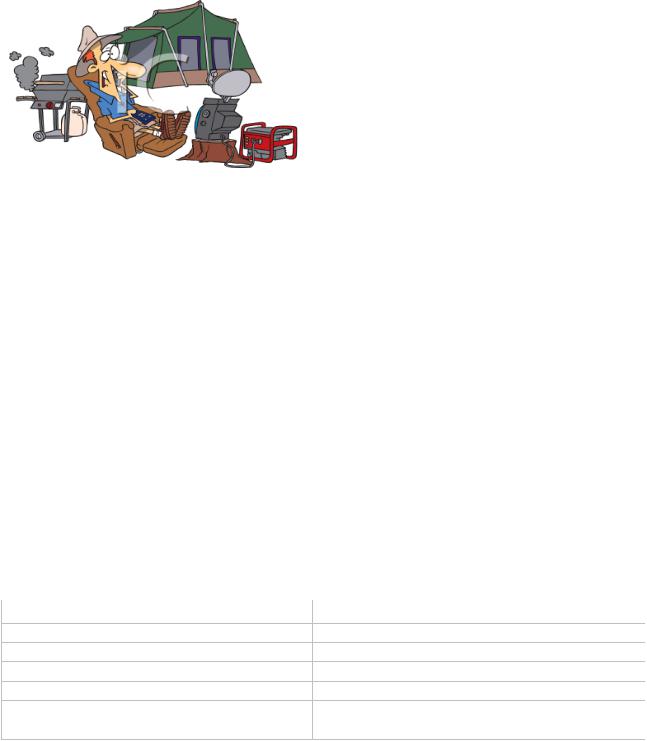
sceneries of the country you are travelling through. You can have a meal in the dining-car or a wonderful bed in a sleeper. Unfortunately, nowadays trains are not so cheap, especially in Europe.
Travelling by ship is also rather popular. Some people enjoy such voyages, but they do not suit me because I get seasick.
Many people, including me, like travelling by car. It is highly fascinating, since you can see numerous sights in a short time, you can stop wherever and whenever you wish, not having to buy tickets or carry your suitcases. With a GPS you don’t need maps anymore. The only thing to care for is petrol.
Hiking is a kind of travelling on foot with a rucksack. Personally, I'm both an ardent motorist and a hiker. I am fond of walking to the mountains or to the forest. There is nothing like gathering mushrooms and berries in the forest, swimming in the river, making a bonfire and cooking on it. This kind of pastime teaches us discipline and strong will, overcoming hardships
and achieving the goal.
Sometimes your journey turns out to be a disappointment. It may happen in case the trip is not well organized, or bad weather spoils your plans, or the company who joined your trip is rather dull, or the place from which you had
expected much appears to have nothing particular. My own sea experience was a failure for the reason I mentioned before. But never lose a hope for the better trip, and you will make it next time!
However, sooner or later you will become home-sick and feel like returning home. Indeed, “East or West – home is best”.
1.Comprehension questions.
1.Why do people travel?
2.What kinds of traveling do you know?
3.What’s the difference between traveling by train and by car?
4.What’s the advantage of traveling by air?
5.Why do some journey disappoint us?
2.Complete the sentences, translating the words in brackets.
1. |
Millions of people all over the world (подорожуютьсправах) |
or for pleasure. |
2. |
There are four means of travelling (літаком,потягом,корабовтоблем). обілем |
|
3. |
Sometimes you have to change planes, (череззатримкирейсів) |
. |
4.With a train you have (швидкість,комфзадоволення).рт
5.Travelling by ship does not suit some people, because they (страждаютьнаморську хворобу).
VOCABULARY PRACTICE |
|
|
|||
|
1. Match the words and phrases in column A with those in column B. |
||||
|
|
A |
|
|
B |
1. |
відправитисяподорож |
|
a) |
to make voyage (trip, journey) |
|
2. |
здійснитиподорож |
|
b) |
to fill in registration form |
|
3. |
замоквитокти |
|
c) |
to pack the luggage |
|
4пров. |
оджати навокзал( , |
і т.п.) |
d) |
to see smb. off |
|
5. |
заплатити вартість проїзду |
e) |
to pay extra |
||
6. |
пакувативалізу |
|
f) |
boarding pass |
|
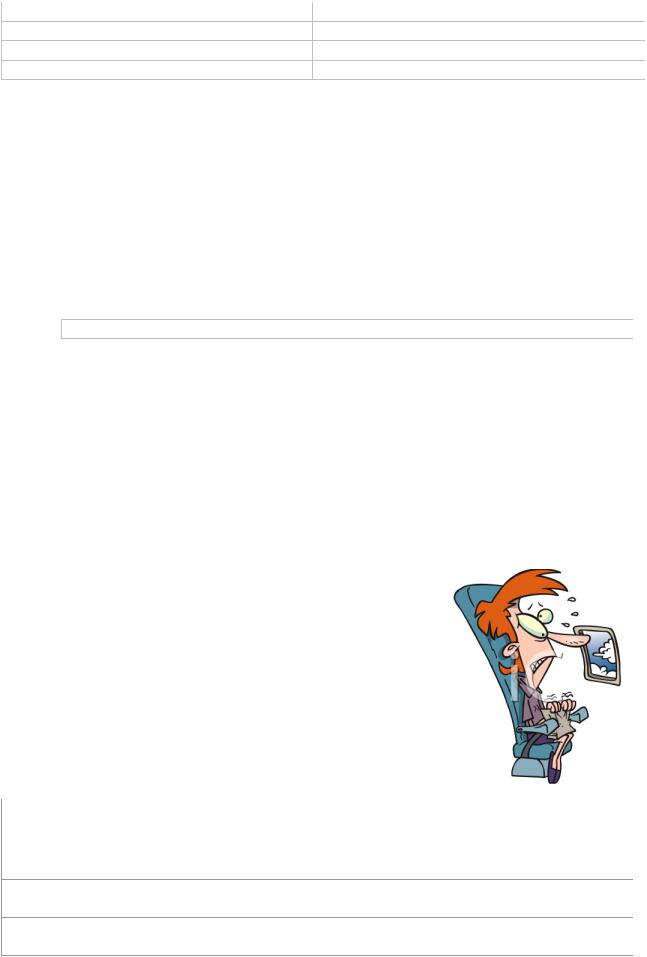
7. |
страждатинаморськухворобу |
g) |
to start on a voyage |
8. |
доплатити |
h) |
to book a ticket |
9. |
посадковий талон |
i) |
to be seasick |
10. заповнити реєстраційну форму. |
j) |
to pay the fare |
|
2.Complete the sentences with English equivalents.
1.Modern life is impossible without (подорожі).
2.Of course the fastest way of travelling is (літаком).
3.Travelling (потягом) also has its advantages.
4. |
You have to call the air line (квиткова каса) and (замоквитокзаздалегідьти |
). |
|
5. |
Her suitcases weigh more than 20 kilograms so she has to (платитиза |
додаткову |
|
|
вагу). |
|
|
6. |
You can (замовитикаюту |
) and travel by ship. |
|
7.Modern trains have very comfortable (спальні вагони).
8.After you’ve filled in (імміграційний бланк) you must go through passport control.
3.Complete the sentences with appropriate word from the box.
traveling, trip, journey, voyage
1.The old man told us that he had written a book about his ………. . .
2.They say that they have made ………. around Europe.
3.Our grandfather was sure that ………. to the country would take no more than an hour by car.
4.Harris was sure that his wife preferred a railway ………. .
5.My wife didn’t enjoy ………. because she felt seasick and was lying in the cabin all the time.
6.The young man said that he was thinking of making a boat ………. down the Thames.
4.Put the words in the correct order to make up sentences.
1.visa before applied flight for I my a …………… .
2.scanned baggage security guard The my …………… .
3.delayed for the was by Boarding hour flight one …………… .
4.when flight my missed I lost I bag my ……………… .
5.because seats like narrow Many are too class people don’t the
economy ……………… .
6.The to cancelled bad was weather due flight ………… .
7.arrivals pick her the Her friends waited gate to at …………… .
8.to For departure flight this go 65 No. gate ……………… .
9.for is per allowance about weight The 25 person kgs airlines most …………………… .
10.passport your check-in the You show at need counter to …… .
5. Match the sentences in columns A and B. |
|
Column A |
Column B |
1.I like to travel alone
2.The last place on earth
3.When I fly
4.I’d much rather walk around a museum
5.My advice is to travel in the fall
6.If you could go anywhere in the world
7.I never forget to bring my towel when I
 a) it’s the most important thing for me.
a) it’s the most important thing for me.
b) it’s not too cold, but it’s also not too busy.
 c) I’d want to go is Alaska. It’s too cold!
c) I’d want to go is Alaska. It’s too cold!
d) and got sunburned.
 e) where would you travel to?
e) where would you travel to?
f) when I’m at restaurants in new cities.
 g) would ever hold everything I want to bring.
g) would ever hold everything I want to bring.
